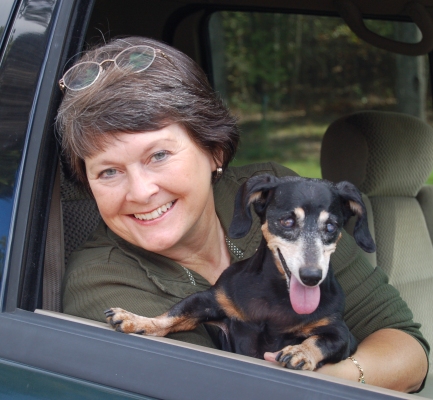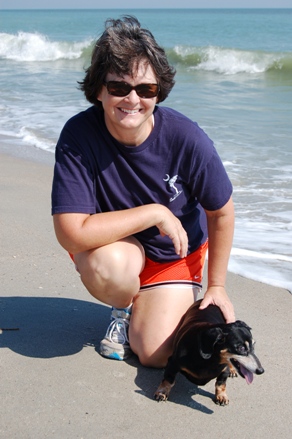IMPORTANT: If you subscribe to my blog via Google Reader, Google is shutting it down as of July 1. Here is how you can subscribe via another reader.
I’m so excited to share with you this special announcement that my award-winning non-fiction, inspirational children’s books about the life of Frankie, and her volunteer therapy dog work at Libby’s House, a Alzheimer’s facility, are now available on Kindle! During Frankie’s lifetime she inspired thousands of children to be positive and make a difference no matter what their challenges in life. She continues to inspire generations today and generations to come.
Frankie the Walk ‘N Roll Dog
A true, inspirational story about a dachshund whose life started out just like any other dog walking on all four paws until a spinal injury leaves her paralyzed. Frankie is custom-fitted for a wheelchair and learns to keep on rolling. Her zest for life will have you cheering and she will give you hope that all things are possible. Frankie will leave an everlasting and loving paw print on your heart. A book for all ages to teach overcoming challenges and also compassion for the physically challenged. See reviews here or order your Kindle copy today here!
Awarded: National Best Book 2008 from USA Book News, Merial Human-Animal Bond Award from Dog Writer’s of American Association, Editor’s Choice award from Allbooks Review, and Indie Excellence Awards Finalist
Frankie the Walk ‘N Roll Therapy Dog Visits Libby’s House
Frankie the Walk ‘N Roll Dog keeps rolling along in her doggie wheelchair. This paralyzed dachshund’s unabashed healing, exuberant spirit, and spunky personality is a blessed gift to everyone she befriends. In this true, inspirational story, Frankie tells how she became a registered therapy dog and shares her visits to Libby’s House, a senior facility where many residents have Alzheimer’s or dementia. Frankie teaches us that patience, listening, and understanding opens our hearts to what matters most—love. See reviews here or order your Kindle copy today here!
Awarded: Indie Excellence Award, Midwest Book Award finalist
Frankie the Walk ‘N Roll Dog Inducted into the Wisconsin Pet Hall of Fame as Companion Dog
***A portion of all proceeds from Barbara’s books, paperback or electronic go to the Frankie Wheelchair Fund which helps dogs with mobility challenges who need a wheelchair.***



